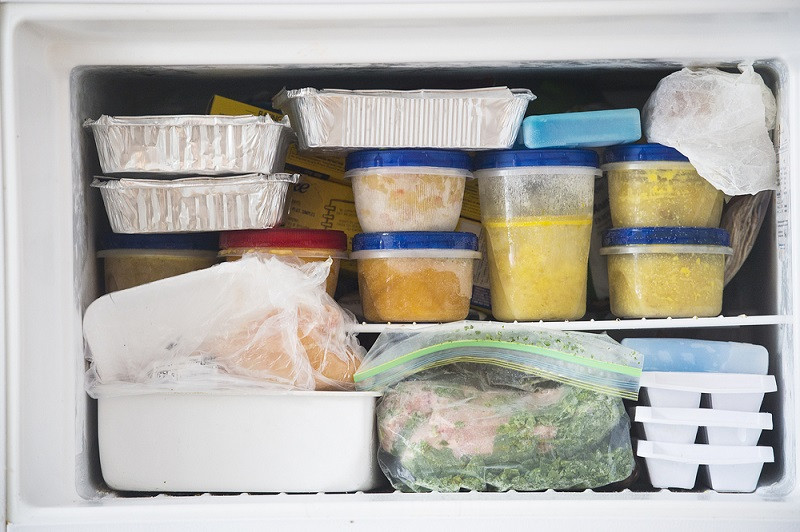Popular Reads
Top Results
Can't find what you're looking for?
View all search resultsPopular Reads
Top Results
Can't find what you're looking for?
View all search resultsFoods you should not store in freezer
Some foods do not handle cold temperatures well and might even degrade in quality once frozen.
Change text size
Gift Premium Articles
to Anyone
T
he freezer is often the go-to place for storing leftovers and groceries. However, some foods do not handle cold temperatures well and might even degrade in quality once frozen.
Most foods that contain a lot of water are better kept out of the freezer. The reason? Water expands when frozen, thus altering the structure of the food.
Here are some foods you should never freeze, as compiled by The Daily Meal.
1. Milk
Although it is completely safe to freeze milk, the creamy liquid will change once it is frozen and thawed. Your milk will instead be separated into water and chunks of dairy.
If you want to try freezing milk, pour it into an ice cube tray, then use it later for making smoothies or as a baking ingredient.
2. Leafy greens
Freezing leafy greens such as lettuce will not keep them fresh for your salads, if that’s what you're aiming for. The water in the leaves will expand and burst the plant cell walls, leaving your greens soggy and limp instead. Frozen greens are perfectly fine if you want to sauté them or, again, make smoothies.
3. Raw eggs
Egg whites are 90 percent water, meaning that when a raw egg is frozen, there is a big chance that the eggshell will crack due to a change in volume.
4. Raw potatoes
It may not seem like it, but potatoes are 80 percent water, according to the Food and Agriculture Organization (FAO). Once a frozen potato is thawed, you are left with a mushy and slimy texture that is not pleasant to eat and difficult to cook.
5. Mayonnaise
First, mayonnaise has a long shelf life in the regular part of your fridge, so you should not actually be storing it in your freezer. As is the case with milk, once it is thawed, mayonnaise will lose its creamy consistency and become clumpy instead.
6. Cheese
Freezing cheese will degrade its quality, especially when you are dealing with aged or soft cheese. However, freezing shaved parmesan is OK due to its texture and low water content.
7. Cucumbers and tomatoes
A cucumber is 95 percent water. Freezing a cucumber will turn its water into ice, altering the texture of it. Once it is thawed, the cucumber becomes mushy.
The same goes with tomatoes, which also have a similar water content. However, if you want to save tomatoes for making soup or sauce, freezing them is an option since their flavor will remain.
8. Avocados
As is the case with milk and cheese, the creamy texture of avocados is not maintained in the freezer. Keep your leftover avocados in an airtight storage container and face them down to minimize contact with the air.
9. Spices
Dried spices generally have a long shelf life outside of the freezer, so putting them in a freezer is not great for your spices since it can alter the flavors and result in clumping due to the change in humidity.
10. Canned foods
Water expands when it freezes. Your canned foods might explode and leave a mess inside.
11. Thawed meat
Storing meat in the freezer is fine, as long as you do not freeze the meat again once it is thawed. If you do that, the meat will dry out and lose its texture. (dev/wng)











